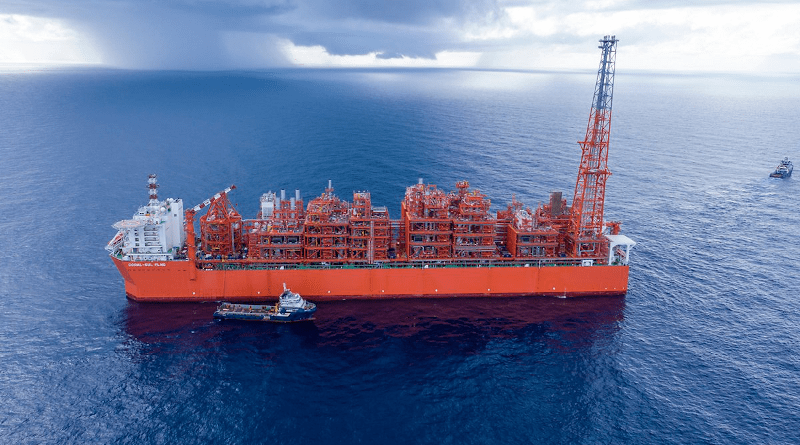Angola, Mozambique and Nigeria plan to discuss comprehensive ways on catalyzing opportunities in Africa’s key growth markets at the upcoming forum energy forum scheduled for mid-May in Paris, France. Reports monitored by this author indicate these African countries’ officials have already expressed readiness to use the two days for networking and intensive engagement with industry experts, project developers, corporate investors and policymakers.
Designed and titled as Invest in African Energy (IAE), the organizers explained that platform is an exclusive forum to be coordinated for facilitating investment between African energy markets and global investors. Taking place May 14-15, 2024 in Paris, the corporate event will also offer delegates to highlight other possibilities of exploring energy resources in Africa.
Eni, the Italian multinational has been responsible for transforming Mozambique into a major LNG exporter through its Coral Sul FLNG project in Area 4 of the Rovuma Basin, and is currently evaluating development of a second LNG unit – Coral Norte FLNG – which could double production capacity. The Coral Sul FLNG is the first floating natural gas liquefaction unit built for the African continent – designed and built utilizing energy optimization and carbon emissions reduction technology – with a capacity of 3.5 million tons of LNG per year.
Moreover, Eni is leading the development of the 18-million-ton-per-year Rovuma LNG project alongside ExxonMobil, which will consolidate the country’s position as a global gas exporter. Last November, Eni also announced plans to drill four more hydrocarbon wells and is in the process of contracting integrated well-testing services. Mozambique represents one of the most dynamic LNG markets on the continent, in which its vast offshore gas reserves could make it one of the top ten producers globally and responsible for up to 20% of Africa’s production by 2040.
As the company targets its second FLNG production unit, Eni Mozambique General Manager Marica Calabrese will address emerging opportunities in Africa’s prime hydrocarbon basins, including Angola and Mozambique, at the Invest in African Energy (IAE) 2024 forum in Paris. Calabrese is further expected to discuss optimizing long-term investments along the energy value chain, as well as plans for expanded gas field development and LNG exports.
“Eni is leading integrated gas development towards enhanced energy security in Mozambique and the broader southern African region through not one, but three LNG megaprojects. At IAE 2024, Eni will share strategies for developing the country’s offshore gas reserves – which could unlock over $100 billion in revenue for Mozambique across project life cycles – as well as its latest project developments,” says Sandra Jeque, Event & Project Director at Energy Capital & Power, organizers of the upcoming forum.
In early 2023, the South African based African Energy Chamber (AEC) in partnership with Germany held the Invest in African Energy (IAE) gathering in Frankfurter Botschaft. Featuring German, European and global investors, private and public sector institutions, the gathering highlighted energy investment, economic growth, energy resilience and environmental sustainability prospects for both Germany and Africa on the back of improved energy development, exploitation and trade ties.
While the demand for gas via liquefied natural gas continues to increase and take on a sizable share of the global energy mix, Africa has to review expanding its share of global gas supply.
With Africa requiring up to $1.7 trillion in the upstream gas sector to increase its gas production as the continent’s role in shaping global energy security intensifies through 2050, Germany has a key role to play in helping the continent maximize and monetize resources. African countries such as Senegal, Mauritania, Algeria, Tunisia, Mozambique, Republic of Congo, Namibia and Angola are well positioned to supply Germany, and the Invest in African Energy (IAE) Frankfurt event in 2023 also presented an ideal platform for Germany to enhance energy ties with Africa and secure its energy future.
With the untapped resources, Africa now needs to find ways unlock the full potential of its energy resources through investment and soliciting for the necessary technological expertise. For years, external engagements with Africa have been flowing in but much depends on the dynamics of the strategic partnership. Support from major external players is also critical, especially the capacity to finance exploration, for instance hydrocarbon development in Africa.
If Africa aims to make energy history in Africa by 2030, the continent needs to maximize utilizing all available resources. As such, African countries with energy resources have the potential to change the continent’s energy landscape, especially at this time of unprecedented global changes and large-scale developments set to establish a multipolar system. In spite of these, Africa needs to redefine its energy security and work consistently towards energy self-sufficiency within the framework of the Sustainable Development Goals (SDGs) and within the African Union Agenda 2063.

